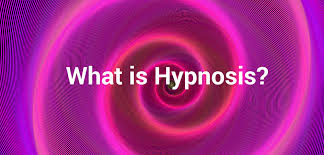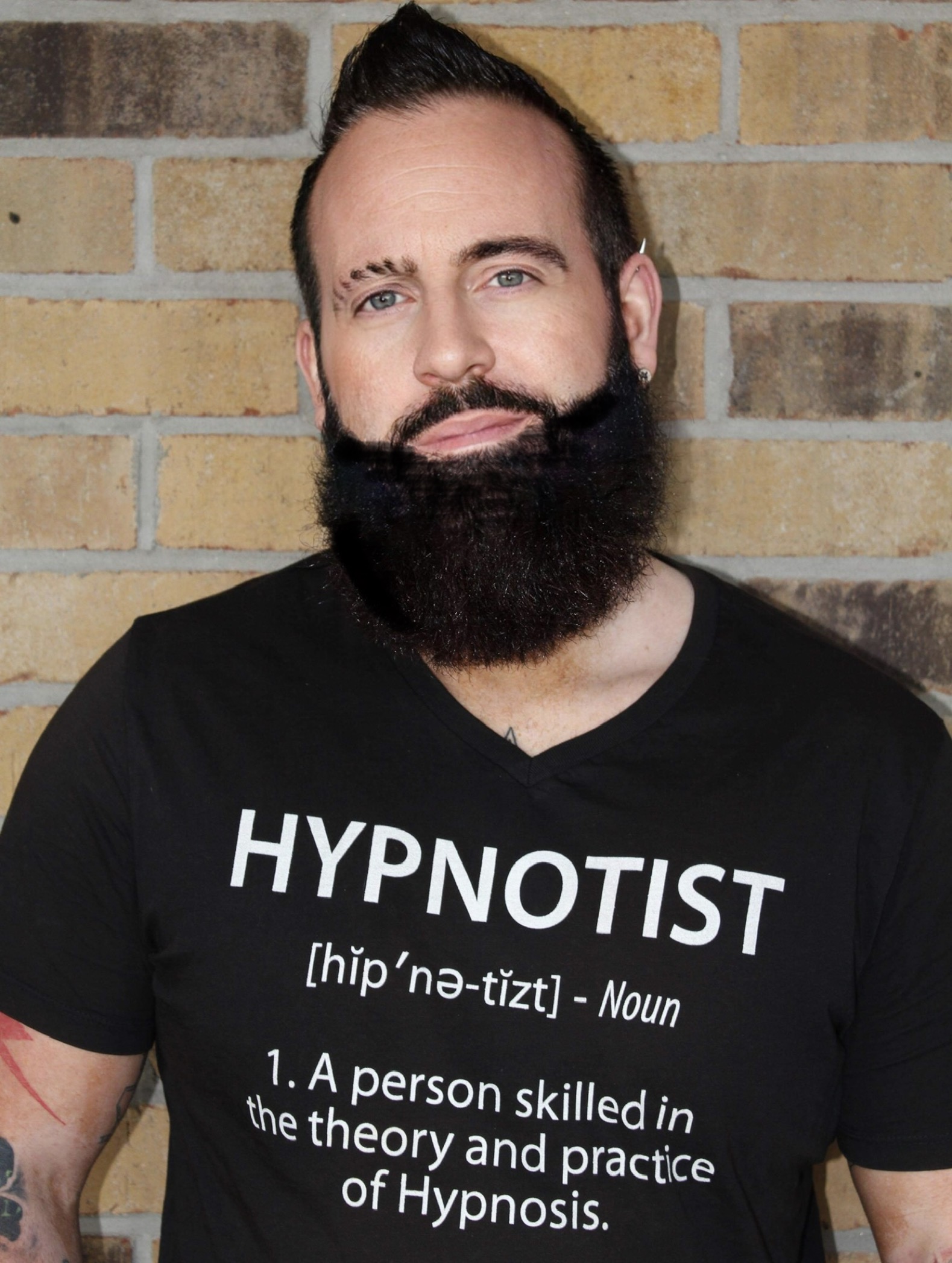
When it was game day, when there were multiple millions of dollars on the line in sponsorship money, in prize money and the accolades have been the bestest golf player in the world, at that time, at that day, when it came to perform, he was no longer working consciously because he'd drilled it over and over again. And if he didn't get it by that point, then he wasn't gonna get it on that day. Like many athletes will say, they go into that flow state where they've done all the training, that it came...comes time to perform. And they perform and they win their tournament. You can use the same metaphor for an actor or a dancer. They practice and they practice and they practice, like a ballerina, until they get out on the big show night. And if they're thinking, if they're inside their head trying to consciously, consciously do all the stuff they practiced, they get inside their own head and there's a disconnect with the audience. And you can feel it. There's a disconnect with their unconscious, if you will, and they don't perform so high.
But they trust their unconscious mind. Because they've drilled it so many times, their unconscious mind just takes over like that. And they go into a flow state where they're not thinking, they're not doing, they're simply being. They are the thing that they've practiced over and over again in that moment, however long that moment lasts to complete that tournament, to win that prize, or that performance. In that flow state where you're not a second in the future or a minute in the past. You're right there and you're right present and you're performing at the high level.
That's another form of hypnosis that I like to say. And most of us have experienced this in some form or fashion. Some of us might be professional athletes, professional dancers, actors, performers. Yet sometimes, you might have just been walking, you might have just been walking, it's a beautiful day outside. And just in that moment, you're feeling your feet touch the sidewalk, for my North American friends, or the pavement, for my European friends. And you just feel it, you feel every step. And you're just there in the moment and you're just so free and your mind is so clear. Another example of mindfulness. Another example of hypnosis and that flow state if you will.
Now everyone can be hypnotized. Who wants to be hypnotized? We're hypnotized multiple times a day. If you've ever daydreamed in your life, you've been hypnotized. If you've ever been caught up in a book, you've been reading a book and then suddenly you look at your watch and what feels like a couple of minutes, you look at your watch, look at your clock and yeah, a couple of hours is gone by and you couldn't believe it. Or you've been so engulfed in a movie that you look at your watch when the movie's ended and you're like, "Oh shit, two hours has gone by? It seemed like it was just 10 minutes." It's another form of hypnosis actually. Time distortion in hypnosis. We do it all of the time.
Another form of hypnosis is what we call highway hypnosis. Have you ever...have you ever been driving home from work to home, and then one day you move home and you've been making the same drive for 10 or so years, and even though you live somewhere else now, automatically you get in your car from work and you drive to your old home thinking that was your old home. You forgot you weren't doing it consciously and you arrive at your old home and you're like, "Oh shit, I don't live here anymore." But what happens in that 10, 20, 30-minute journey, you were just driving automatically. You were aware on some level that you were driving, yet it was happening involuntarily. It's another form of hypnosis.
For me, hypnosis is about letting go. It's about letting go. Because only three things need to be present for you to be hypnotized, and you've been hypnotized involuntarily, passively, each day. Every time that you go past that billboard that advertises that thing that you don't need and it gets into your mind over and over again, that's a form of hypnosis. Or you stay up late and you watch those late night infomercials, like I do if I stay at a hotel somewhere, it's a massive form of hypnosis where at 3 o'clock in the morning, you're like, "Well, actually I think it's a good idea to purchase one of those Ginsu knives that cut through a boot." Now I've never needed to cut through a boot with a knife but at 3 o'clock in the morning, sometimes that just seems like a cool idea.
We're all being hypnotized multiple times a day. My job as a hypnotist is to help you to better hypnotize yourself, is to help you to choose your trances so your trances don't choose you. Example of this is someone who's really, really angry all the time, or most the time. Or someone who's really, really depressed and sad all the time. They're hypnotized. You're hypnotized. You think when you're very very sad for a long period of time or when you're really, really angry, that's not your normal state. That's an altered state. An altered state, by its very definition, is a form of hypnosis. Something else is going on. It's not who you are. It's just something that you're doing in that particular moment. Albeit, you might not be doing it consciously with volition. Hence, it's a form of hypnosis.
Everyone can be hypnotized because you're hypnotized every single day. Any time you're in a loop of thought, an obsessive-compulsive thought that goes over and over again inside your head, it's a form of hypnosis. Yet you don't think you have any control of it. And I'm here to tell you right now you're right, and then on another level, you're not right. But we'll get into that in the control podcast when we eventually do that. For me, hypnosis is about letting go. For me, hypnosis is about simply letting go. Whereas when I get a lot of people into my office, all my metaphors point back to them letting go, not just mentally but physically.
Because in hypnosis, you do not need to try to do anything. You don't need to try to picture something, try to bring up that feeling, try to hear that. So no, you don't need to try and do anything. You just simply do it, it's the new normal. It's an automatic response. It's taking one automatic response of whenever John looks at me this way, I get angry. It's taking that automatic response and changing it into every time John looks at me, I feel neutral or I feel loved. Whatever it may be. It's about changing the automatic response that you normally have into a new automatic response.
And the thing with hypnosis or any kind of change work, any quality type of change work is this: we have a neurological pathway, a way of doing something. Example is the smoker. They smoke. They get stressed, they smoke. It's that time at work, they've got a 10-minute extra break, they smoke. They're happy, they smoke. They've just had amazing sex, they smoke. They've just finished dinner, they smoke. They've just had a glass of wine or beer or whiskey and then they smoke. It's automatically linked to it. There is a neurological pathway. I get this trigger, I do this thing. There's only one path.
What we help to do in hypnosis, one of my main job is, is to help to set up a new neurological pathway. So we interrupt the old neurological pathway. And think about neurological pathway as a road. If you've only got one road to travel down, when you're angry, when you're sad, when you're craving a cigarette, more food, crack, heroin, love, if you only got one road you're always gonna travel down that one road. However...and what we do in hypnosis is we help to set up a new neurological pathway in the sessions and the work together. So you now have another path and another road to travel down. And we've got two ways of learning.
The first way we learn is by practical skills in a waking state every day, i.e. Tiger Woods, hit the ball this length with this kind of stroke, if that's the right terminology, for golf. Drill, drill, drill, over and over again. And we do learn at a practical level. However, unconsciously, when we sleep at night and we have good, high-quality sleep, our brain, our unconscious mind, if you will, will take account of what happened that day. And like a join up the dots game that you used to play as a kid, it joins up the dots of your day. And that's how it makes a new neurological pathway.
And the more you go down the new neurological pathway, the new normal, the new behavior, that old road, that old pathway gets shut down. Because if there's a road that no one travels down anymore, over time what happens to it? It gets derelict, it gets shut down. It returns to how it was. It gets overgrown by grass, by moss, by trees. And after a while, that road just ceases to be a road anymore. It goes back to how it was naturally because you've got this new neurological pathway that when you see this or when this trigger comes in, you now respond in a different way.
Because you see as we sleep, they've done tests before on songbirds. And when a songbird, a baby songbird is around the mother songbird, in the daytime, in a wakened state, it sings. And they made these little neurological devices to put on songbirds' heads so they can actually monitor the brain wave activity. And when a songbird sings, there's a certain part of their brain that goes off. They call it the learning part of the brain. The interesting thing is this, though. When this songbird sleeps, the same part of the brain that's responsible for learning is getting triggered off.
So yes, you do need to learn stuff in a wakened state, but also in a sleeping state of high-quality sleep, the unconscious mind is working to join up those dots. Equally, both are important. To be hypnotized, you're already hypnotized. But to be very successful in hypnosis, we just need three things. You need to want to be there, you need to want to be hypnotized. You need to want it for yourself. You're not being pressured by someone else to quit smoking, to lose weight, to let go of your anger, your depression, your sadness, your trauma, your PTSD. You want to let go of it for yourself. And yeah, other people might benefit from it.
And number three, you can follow simple instructions. Meaning if I say close your eyes,, you're not there staring at me like a freaking lunatic. If I say uncross your legs, you're not like, "Why, why, why, why are you asking me to try and uncross my legs?" No, you just uncross your legs. You can follow simple instructions. As long as you can do that, you can be hypnotized, and you can make profound changes in your life.
So to summarize today's podcast, what is hypnosis? It's an automatic response in spite of conscious awareness. You're going into hypnosis multiple times a day when you're reading a good book, when you're daydreaming, highway hypnosis, when you're watching a good movie. Old school definition would be bypassing the critical factor, bypassing your conscious mind, the analytical mind, and going straight into the involuntary mind, the unconscious mind. It's about being rather than doing and simply letting go of any concepts.
That's my definition of hypnosis. That's how I explain hypnosis to my clients and show them many, many practical applications of it that before they're actually even into, as I do air quotes right now, formal hypnosis, involuntary movements are happening with their body and their problems seem to be disappearing. Thank you for listening to podcast number 10, what is hypnosis? And we've got a wonderful thing that's happening actually this month.
Always Believe,
Luke





